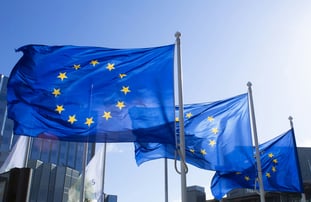July 2025
Danish Presidency of the Council of the EU: A Geopolitical Agenda in Focus
Region: Europe
Author: Alban Sadorge-Hardy
As of 1 July 2025, Denmark holds the rotating Presidency of the Council of the European Union, under the inspiring motto: “A Strong Europe in a Changing World”.
As of 1 July 2025, Denmark holds the rotating Presidency of the Council of the European Union, under the inspiring motto: “A Strong Europe in a Changing World”. The Danish Presidency is structured around two overarching priorities: ensuring Europe takes greater responsibility for its own security, and enhancing its economic competitiveness. These priorities reflect a rapidly changing global landscape, where external pressures increasingly shape the EU agenda and underscore the need for Europe to assert itself as both an economic and political power.
Faced with war in Ukraine, turmoil in the Middle East, and a surge in hybrid threats—from cyberattacks to disinformation—the Danish Presidency has put security at the heart of its agenda. Although Denmark does not share a land border with Russia, its leaders are wary of Russia’s presence in the Arctic and the Baltic Sea. While Denmark remains firmly anchored in the transatlantic alliance—as shown by its acquisition of US F-35 fighter jets—at a time when Europe is striving to strengthen its strategic sovereignty, it has, since lifting its EU defence opt-out in 2022, also taken steps to play a more active role in EU defence cooperation. Its position, however, remains complex.
Denmark advocates for increased European defence autonomy—not as a substitute, but as a complement to NATO. A key focus of the Presidency is the ReArm Europe initiative, aimed at boosting defence investment across Member States to meet collective NATO objectives.
Denmark has also pledged to “work ambitiously” towards a merit-based enlargement of the Union, while preparing the EU internally for this next phase of integration. In this spirit, the Danish Presidency will push forward accession negotiations with Ukraine, Moldova, and the Western Balkans.
“Further enlargement of the EU is a geopolitical necessity. This is the only way for the EU to effectively contribute to stabilising the European continent and strengthening the resilience of countries vulnerable to unwanted external influence.”
Trade policy features prominently on the Danish agenda as well. Copenhagen aims to advance constructive EU-US cooperation on trade, investment, economic security, supply chains, and emerging technologies, while preserving European unity in line with the European Commission’s balanced and proportionate approach. President Trump’s recent announcement of 30% tariffs on the EU, set to take effect on August 1, is likely to compel Denmark to defend its stance within EU institutions, where debates are currently taking place on whether to adopt a proportionate or coercive approach.
The Danish Presidency intends however to prioritize a more open, resilient, and strategically assertive EU trade policy. This involves accelerating negotiations with key partners in Asia, the Middle East, and Africa, and fast-tracking the ratification and implementation of existing agreements, including those with Latin American countries.
The influence of global dynamics is also expected to shape internal EU policies. As negotiations on the post-2027 Multiannual Financial Framework (MFF) commence under the Danish Presidency, traditional flagship programmes such as the Common Agricultural Policy, Cohesion Policy, Erasmus+, and Creative Europe may face increased pressure as the Union redefines its spending priorities. This is what emerges from the initial budget guidelines presented by the European Commission on 16 July. The Danish Presidency of the Council of the EU hopes to finalize an initial negotiating document by the time of the summit of heads of state and government on 18 and 19 December.
